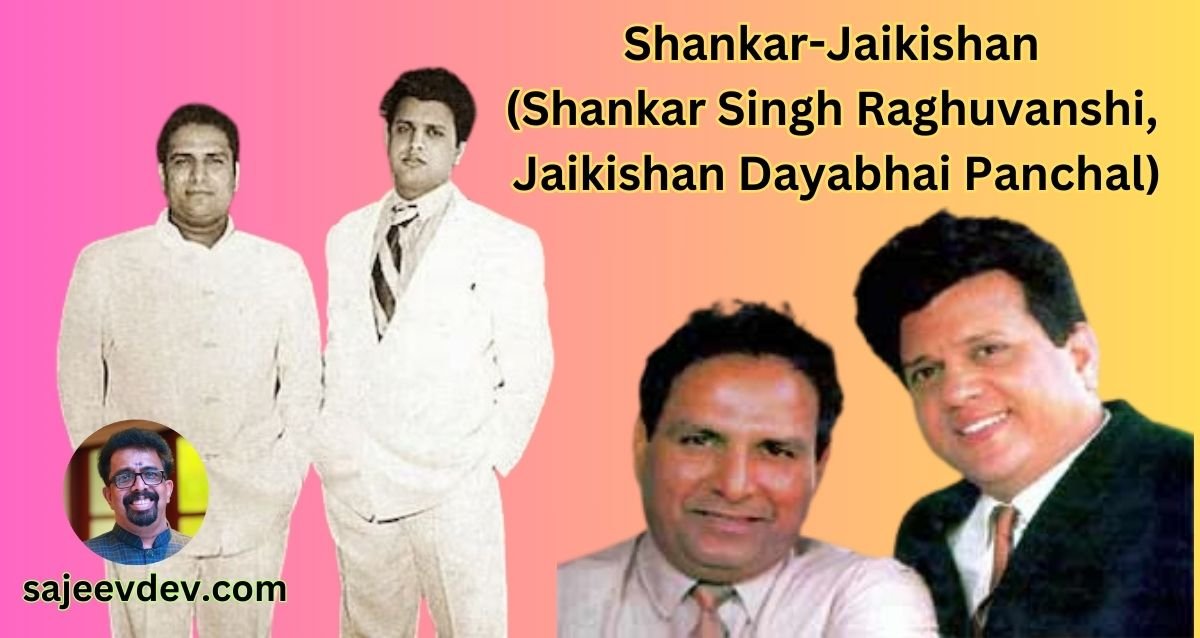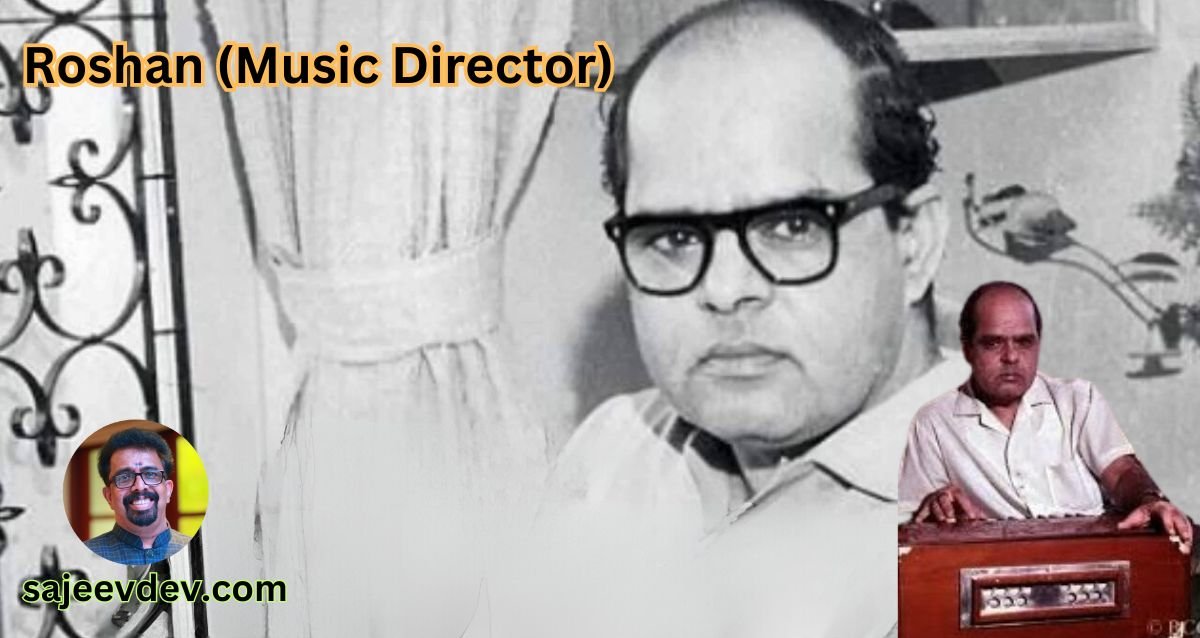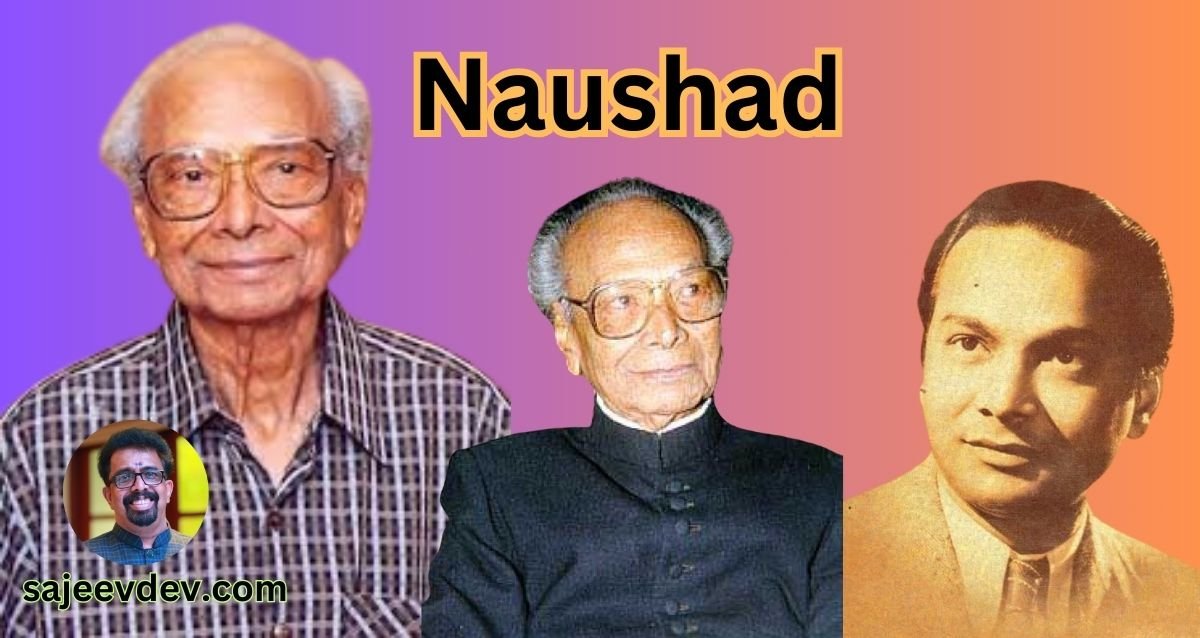Shankar-Jaikishan
Shankar Singh Raghuvanshi and Jaikishan Dayabhai Panchal, more commonly referred to as Shankar-Jaikishan, are heralded as one of the most influential music composer duos in the history of Hindi cinema. Their partnership, spanning from the early 1950s to the late 1970s, was instrumental in defining and elevating the musical identity of Bollywood. The duo’s entry into the industry marked the dawn of a golden era in Bollywood music, demonstrating their unparalleled knack for blending classical Indian music with contemporary sounds.
Shankar-Jaikishan’s impeccable ability to create melodies that resonated deeply with audiences was complemented by their innovative approach to orchestration. They were pioneers in incorporating Western musical instruments seamlessly into traditional Indian compositions, thus producing a unique soundscape that appealed widely to the masses and critics alike. Their music was not just a mere accompaniment to the films but played an integral role in enhancing the narrative and emotional depth of the stories portrayed on screen.
Their versatile portfolio includes an impressive array of genres ranging from soulful ballads to peppy dance numbers, each showcasing their genius and versatility. The duo’s comprehensive understanding of rhythm, harmony, and melody ensured that their compositions were not only pleasing to the ear but also evocative and memorable. Shankar-Jaikishan’s ability to tune their music precisely to the essence of the film and characters made their work stand out and remain timeless in the annals of Hindi cinema.
Shankar-Jaikishan’s contribution to Bollywood is not merely confined to their compositions. They set a precedent for future generations of music directors, instilling a sense of innovation and excellence in the art of film music composition. Their rich legacy continues to influence contemporary music creators, securing their position as luminaries in the world of Bollywood’s musical evolution.
Early Lives and Formation of the Duo
Shankar Singh Raghuvanshi and Jaikishan Dayabhai Panchal, the legendary musical duo known as Shankar-Jaikishan, each brought unique backgrounds and influences that enriched their collaboration. Shankar Singh Raghuvanshi was born in Hyderabad and displayed a profound aptitude for classical music early on. His rigorous training under various classical music maestros forged a deep understanding of ragas and Indian classical compositions. This foundation became an essential element in his future work, contributing to the duo’s distinctive sound.
On the other hand, Jaikishan Dayabhai Panchal hailed from Bansda, Gujarat. He grew up with a penchant for Western music, which was relatively rare in India at that time. His exposure to Western instruments and symphonic compositions provided a fresh perspective that complemented Shankar’s classical expertise. Jaikishan’s ability to blend Western arrangements with Indian melodies played a critical role in diversifying the Bollywood music landscape.
Their paths converged in the bustling city of Mumbai, then Bombay, the epicenter of India’s burgeoning film industry. They met through a common acquaintance and instantly recognized the potential synergy of their talents. With Shankar’s classical prowess and Jaikishan’s Western inclinations, they started experimenting with new musical ideas that defied conventional norms.
Early on, Shankar and Jaikishan faced numerous challenges, including stiff competition and a lack of recognition. Despite initial hardships, their perseverance led to their breakthrough with the 1949 film “Barsaat,” directed by Raj Kapoor. The film’s music, characterized by melodious tunes and innovative orchestration, was an instant sensation, establishing Shankar-Jaikishan as a formidable force in the industry. Their collaboration with lyricists Shailendra and Hasrat Jaipuri further strengthened their artistic impact, leading to a prolific career filled with timeless melodies.
Thus, Shankar and Jaikishan, through the fusion of their diverse musical backgrounds and relentless dedication, emerged as one of the most iconic and influential duos in Indian cinema history.
Collaboration with Raj Kapoor
The fruitful partnership between Shankar-Jaikishan and Raj Kapoor commenced with the 1949 film ‘Barsaat,’ marking the dawn of a new era in Hindi cinema. This alliance not only forged a prolific creative synergy but also redefined the musical landscape. In ‘Barsaat,’ Shankar-Jaikishan’s innovative compositions, infused with classical and contemporary elements, garnered immense acclaim and set a high standard for future projects.
The trio’s collaboration extended seamlessly into the 1950s and 60s, with landmark films such as ‘Shree 420’ (1955) and ‘Sangam’ (1964). ‘Shree 420’ was a testament to their artistic excellence, showcasing music that was both commercially successful and critically acclaimed. Memorable tracks like ‘Mera Joota Hai Japani’ and ‘Pyaar Hua Ikraar Hua’ exemplified Shankar-Jaikishan’s ability to blend melody with thematic depth, thereby enhancing Raj Kapoor’s cinematic vision. The songs not only provided lyrical profundity but also contributed significantly to the film’s narrative and emotional arcs.
In ‘Sangam,’ the duo’s compositional brilliance reached new heights. Shankar-Jaikishan’s music in ‘Sangam’ encapsulated the essence of the film’s romantic and dramatic themes, with iconic melodies such as ‘Bol Radha Bol’ and ‘Har Dil Jo Pyar Karega.’ Their music seamlessly integrated with Raj Kapoor’s storytelling, creating an auditory experience that resonated with audiences across generations.
Shankar-Jaikishan’s collaboration with Raj Kapoor was more than just a professional engagement; it was a deep alignment of artistic visions. Their work not only shaped the soundtracks of these films but also left a lasting imprint on the fabric of Hindi cinema. Their music was instrumental in defining the mood and tone of Raj Kapoor’s films, thus contributing to his legacy as one of the foremost auteurs in the industry.
Timeless Melodies: Iconic Compositions
The musical partnership of Shankar-Jaikishan has gifted us with melodies that transcend generations. Renowned for their exceptional contributions to Indian cinema, their compositions continue to resonate with audiences worldwide. Among their extensive repertoire, a few stand out as testaments to their genius.
‘Mera Joota Hai Japani’ from the film “Shree 420” exemplifies their ability to blend patriotism with universal appeal. The song’s upbeat tempo and playful lyrics, sung by the legendary Mukesh, turned it into an anthem of national pride. The underlying message of simplicity and self-reliance struck a chord with post-independence India. Critically acclaimed and widely beloved, it captures the essence of the ordinary Indian’s aspirations.
‘Awara Hoon’ from “Awaara” is another evergreen tune that showcases Shankar-Jaikishan’s mastery. The melancholic yet uplifting melody, coupled with Raj Kapoor’s on-screen charm, created an unforgettable experience. Internationally, the song found an unexpected audience in the Soviet Union and parts of Eastern Europe, illustrating the duo’s universal appeal. The success of ‘Awara Hoon’ lies in its poignant lyrics and orchestration, which perfectly complement the emotional undercurrents of the film’s narrative.
‘Bol Radha Bol’ from “Sangam” stands as a beautiful example of harmonic complexity and lyrical depth. Sung by Mukesh and Lata Mangeshkar, the song explores themes of love and societal norms. The intricate musical arrangement, blending classical Indian instruments with Western nuances, highlights Shankar-Jaikishan’s innovative approach to composition. The song not only became a chartbuster but also left an indelible mark on the cultural tapestry of the 1960s.
Anecdotes about these songs further enrich their legacy. Raj Kapoor’s insistence on perfection pushed Shankar-Jaikishan to create compositions that were both emotionally resonant and musically impeccable. Their ability to integrate narrative themes with sophisticated musical structures has cemented their status in the annals of Indian cinema. Critics have often lauded their versatility, and audiences continue to celebrate their timeless appeal.
Innovative Musical Style
Shankar-Jaikishan’s innovative musical style remains one of the most distinctive features of their legendary compositions. They were pioneers in combining the richness of classical Indian ragas with the grandeur of Western orchestration. Their deft use of Indian ragas provided an emotional depth and authenticity to their music, while Western instruments like the piano, violin, and trumpet added a nuanced flair that broadened the appeal of their compositions.
One of the key strengths of Shankar-Jaikishan was their ability to seamlessly blend diverse musical genres. They ventured beyond the traditional boundaries of Indian music, incorporating elements of jazz, waltz, and rock’n’roll into their compositions. This type of experimentation was relatively unheard of at the time, making their music both groundbreaking and universally appealing. For instance, in the song “Aaja Sanam” from the film “Chori Chori,” the use of mandolin and accordion alongside classical orchestration created a melodious interweaving of different musical traditions.
Additionally, Shankar-Jaikishan had a unique talent for adapting their music to fit the specific themes of various movies. Whether it was crafting the soulful, semi-classical tunes for poignant dramas or creating lively, catchy numbers for romantic comedies, they mastered the art of musical versatility. This adaptability not only showcased their technical prowess but also ensured that their compositions resonated with a wide spectrum of audiences. Their soundtrack for “Sangam” is a perfect example, where they beautifully melded classical tunes with modern, orchestrated arrangements to captivate listeners.
Their ability to blend genres and innovate without compromising on the traditional essence made Shankar-Jaikishan’s musical style timeless. Even decades later, their songs continue to enchant new generations of music lovers, cementing their legacy as one of the most creative and influential musical duos in the history of Indian cinema.
Awards and Recognitions
The legendary music duo, Shankar-Jaikishan, left an indelible mark on the Indian music industry with their exceptional compositions. Over their illustrious career, their contribution to cinema was acknowledged through numerous prestigious awards and recognitions, affirming their undeniable talent and enduring legacy.
The Filmfare Awards, one of the most prominent awards in Indian cinema, bestowed on Shankar-Jaikishan a remarkable array of accolades. They won an impressive nine Filmfare Awards for Best Music Director, starting with the win for the film “Chori Chori” in 1956. Their success continued with wins for celebrated films like “Anari” (1959), “Dil Apna Aur Preet Parai” (1960), “Professor” (1962), “Suraj” (1966), and “Brahmachari” (1968). Each award not only signified their relevance in the industry but also their ability to consistently deliver timeless melodies.
In addition to the Filmfare Awards, the duo was honored with various state recognitions. Notably, they received the Sangeet Natak Akademi Award, which was a significant acknowledgment from India’s National Academy for Music, Dance, and Drama. This prestigious award recognized their outstanding contribution to the field of music and their influence on the cultural fabric of India.
The impact of Shankar-Jaikishan’s music extended beyond national borders, as they were also honored internationally. Their music was embraced by global audiences, and they were proud recipients of several international accolades, further cementing their reputation as global music icons from India.
The official acknowledgment of their work by the industry and beyond exemplifies the lasting effect Shankar-Jaikishan had on Indian music. Their outstanding compositions continue to resonate with audiences, inspiring a plethora of musicians across generations. The awards and recognitions they garnered are a testament to their musical prowess and enduring legacy, making them a revered name in the annals of Indian cinema.
Challenges and Later Years
The journey of Shankar-Jaikishan, one of Bollywood’s legendary music composer duos, was not without its challenges. As they navigated through the rapidly evolving landscape of the music industry, the duo faced numerous adversities. The seismic shifts in cinematic trends, characterized by changing audience preferences and the emergence of new musical styles, posed substantial challenges for Shankar-Jaikishan.
In the late 1960s and early 1970s, Bollywood music began to witness a paradigm shift. Rock and roll influences from the West began seeping into Indian cinema, and newer composers who were adept at blending these modern influences with traditional Indian melodies started to gain popularity. As a result, Shankar-Jaikishan faced the pressure to adapt and evolve in their musical approach. Despite their immense contributions and iconic status, they found the changing trends sometimes clashing with their hallmark style, which was deeply rooted in classical Indian music yet innovative in its orchestrations.
Personal dynamics also contributed to the challenges. Creative differences and divergent paths eventually led to the duo’s separation. While they still worked together intermittently, their collaborative output saw a decline. Each composer ventured into solo projects, marking a distinct phase in their careers. Shankar continued to experiment with traditional compositions, remaining loyal to his classical roots. Jaikishan, on the other hand, explored varied musical territories, integrating contemporary influences to stay relevant in the fickle industry.
Despite working individually, both Shankar and Jaikishan left indelible marks on the music they created. Their solo efforts exhibited their individual strengths, yet the essence of their collective genius often seemed unparalleled. Shankar’s solo projects were diverse, while Jaikishan’s compositions resonated with a fresh dynamism that appealed to younger audiences. This period, marked by their solo ventures, showcased their adaptability and perseverance in the face of adversity.
The legacy of Shankar-Jaikishan remains monumental in the annals of Indian music. Their ability to navigate through personal and professional obstacles stands testament to their resilience. Though their later years involved independent endeavors, they continued to influence and inspire the industry with their timeless melodies.
Legacy and Influence on Modern Music
Shankar-Jaikishan, the iconic music composer duo, have left an indelible mark on the landscape of contemporary Indian music. Their pioneering work in melodious compositions and innovative orchestration not only defined an era but also laid the groundwork for generations of composers and musicians to come. Many modern-day artists pay homage to Shankar-Jaikishan’s genius, crediting their timeless melodies as foundational to their own musical journeys.
Their legacy is evident in the way contemporary composers incorporate the duo’s signature styles, whether it’s the intricate, classical touches or the seamless blend of Eastern and Western musical elements. Shankar-Jaikishan’s influence stretches beyond their immediate successors; they have significantly shaped the music industry by inspiring creativity and innovation. The duo’s comprehensive approach to film scores and attention to detail continues to serve as an exemplar for aspiring musicians today.
Tributes and acknowledgments further highlight Shankar-Jaikishan’s enduring impact. Renowned composers like A.R. Rahman and contemporary musicians often mention how Shankar-Jaikishan’s work has been pivotal in shaping their musical ideologies. The intricate arrangements and emotive compositions by Shankar-Jaikishan still resonate with these contemporary stalwarts, revealing the timeless appeal of their music.
In various interviews and music forums, today’s artists frequently cite Shankar-Jaikishan as a profound influence. Their songs are often reinterpreted and covered, bridging the gap between the golden age of Indian cinema music and today’s dynamic soundscapes. The duo’s ability to evoke emotion and narrate stories through music has become a benchmark for quality and creativity in the industry.
Overall, Shankar-Jaikishan hold a revered place in the annals of Indian music history. Their compositions, such as “Awara Hoon” and “Ghar Aaya Mera Pardesi,” continue to captivate listeners across generations. The timeless melodies of Shankar-Jaikishan not only reflect their unparalleled talent but also ensure that their influence on modern music remains enduring and profound, affirming their status as true legends of Indian cinema music.



